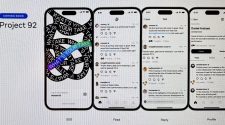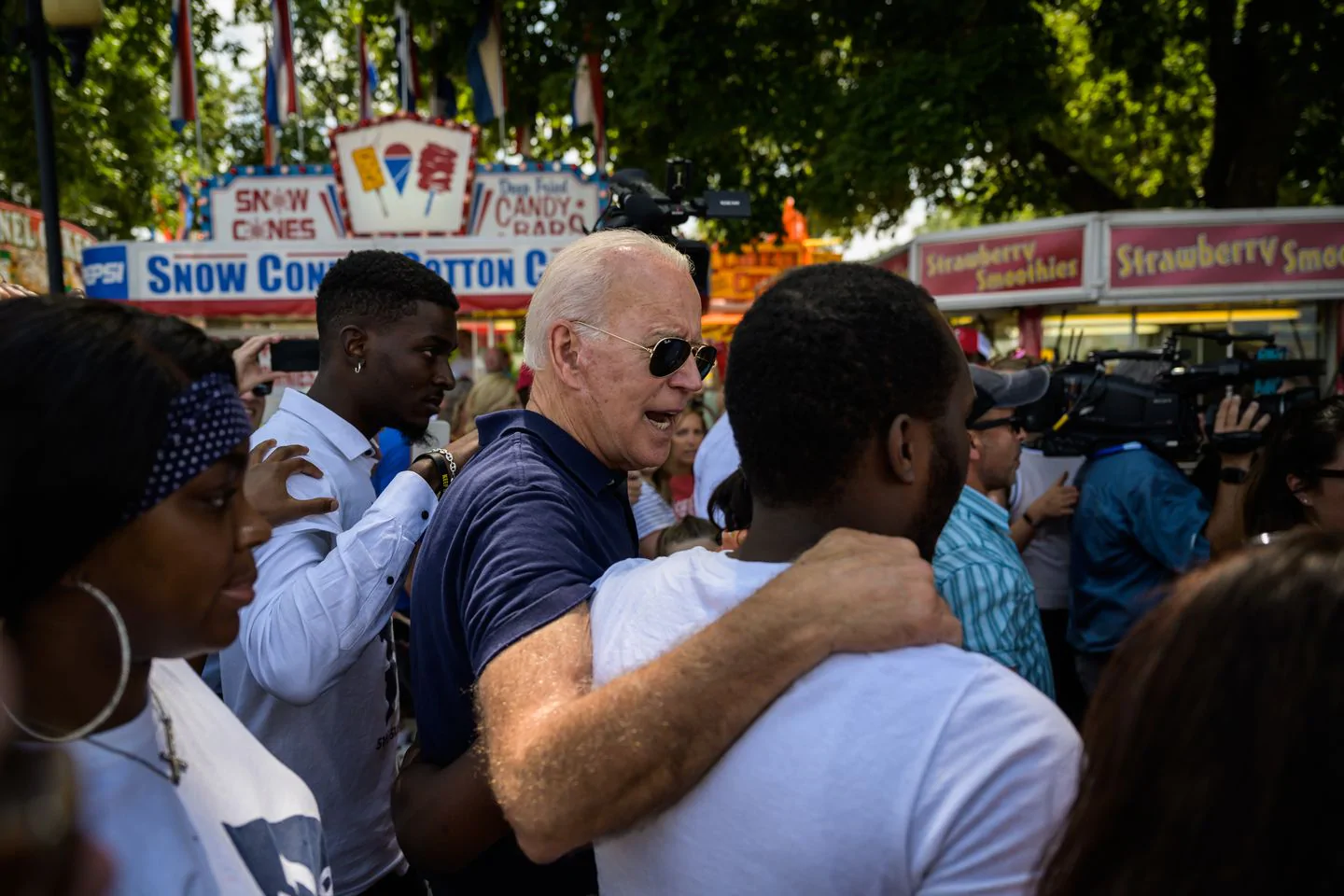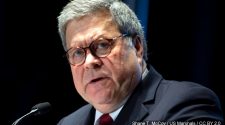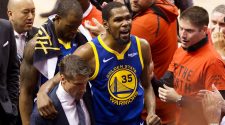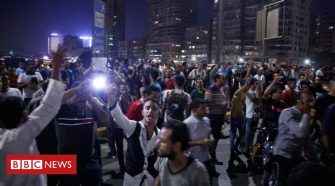The survey finds meager support for former South Bend, Ind., mayor Pete Buttigieg, who is among the leaders in polls in the predominantly white states of Iowa and New Hampshire but stands at 2 percent among Democratic black voters nationally. A lack of familiarity with him and concerns about his experience and sexual orientation appear to be contributing to his current standing. Buttigieg has said that as African Americans get to know him, he will gain more support, but the poll undercuts that assertion. He receives only 3 percent support among black voters who are familiar with him.
The results, highlighting the views of a group that historically has played a significant role in determining the outcome of the Democratic nominating contest, help to explain the enduring strength of Biden’s candidacy. Despite questions about his age, his past positions on forced school busing and his relationships with Southern segregationist senators, the poll shows that 48 percent of black Democrats favor him for the nomination — a 28-point advantage over Sanders.
Biden “is the candidate that can try to get this country back on track, because we are way out of control,” said Eula Woodberry, a retired school district budget analyst in Dallas, where she still lives. “He’s levelheaded. I think he’s experienced, and I think he will look at the big picture. . . . He’s the type of person who can serve as the nucleus to bring people back together.”
Edward Phillips, 52, a former legal assistant who lives in New York City, called Biden a “known face,” adding, “You know he was vice president under [President Barack] Obama. You know his experience. I trust him. I believe him. I think he’s the only person among the Democrats who can defeat Trump.”
The survey, conducted by The Post and the nonpartisan research firm Ipsos, is one of the most extensive studies to date of views on the 2020 campaign among black voters, who, like other minority groups, are often represented by only small samples in customary national polls. It was conducted among 1,088 non-Hispanic black adults, including 900 registered voters, drawn from a large online survey panel recruited through random sampling of U.S. households.
More than 8 in 10 African American adults say the outcome of the 2020 election is important to them, and 79 percent say it is important to them personally that Trump not win a second term, with 66 percent saying that is “extremely” important to them.
Trump performs poorly among black voters when matched against any potential Democratic nominee. He wins just 4 or 5 percent of black voters when tested against eight Democratic candidates individually. But there is a 25-point variation in the levels of support for individual Democrats in these hypothetical contests against the president, an early measure of which candidates could more easily consolidate black support and who might struggle to turn out black voters in November.
In the competition for the Democratic nomination, Sanders is at 20 percent among black Democrats, followed by Warren at 9 percent. Buttigieg’s 2 percent support ties him with wealthy businessman Tom Steyer but slightly behind Sen. Cory Booker (D-N.J.) and former New York mayor Mike Bloomberg at 4 percent each and the entrepreneur Andrew Yang at 3 percent.
Sen. Amy Klobuchar (D-Minn.), who is looking for a breakthrough in Iowa, receives less than 1 percent support among black voters, as does former Massachusetts governor Deval Patrick, the other African American candidate tested along with Booker.
When second choices are combined with first choices, Biden stands at 64 percent, Sanders at 42 percent, Warren at 28 percent and Booker at 12 percent. No other candidate rises to double digits in the combined first- and second-choice rankings of African American voters.
The Post-Ipsos survey’s large sample size illuminates the contours of Biden’s support among different subsets of the black electorate.
Age is the sharpest dividing line among black Democratic voters. Though Biden leads his rivals by more than 2 to 1 overall, he trails Sanders by 42 percent to 30 percent among black Democrats ages 18 to 34.
Sanders’s support falls to 16 percent among black Democrats ages 35 to 49, far lower than Biden’s 41 percent support in this group. Biden’s support strengthens among older Democrats, rising to 68 percent among those 65 and older.
While Democrats boasted the most racially diverse field of candidates in history at the start of the presidential campaign, all six of the candidates who have gained enough support in polls and campaign donations to qualify for the next candidate debate, set for Tuesday in Iowa, are white. If a white candidate wins the nomination, 27 percent of black Democrats say it is “very” or “fairly” important that the person choose a vice presidential running mate who is black, while 35 percent say this is “not so important” and 38 percent say it is “not at all important.”
But Caroline Bivins, a teacher in her 40s in the Atlanta area, said a ticket that includes a black candidate would motivate African Americans. “Let’s just say Elizabeth Warren chooses [Georgia’s] Stacey Abrams, I think more blacks would go to the polls,” she said.
The survey offers insights into the ideological diversity of the black community, which has long been a core element of the Democratic base but is far from uniformly liberal in a party that has shifted leftward in recent years.
Six in 10 black Democratic voters identify as moderate or conservative, and Biden gets 58 percent support among this group, compared with 14 percent for Sanders and 8 percent for Warren.
Biden is favored by 53 percent of black Democratic voters in the South, a region where the concentration of African Americans helped both Obama and Hillary Clinton amass delegates in their successful nomination campaigns and could do the same for Biden if his support holds.
A majority of Democratic-leaning blacks (57 percent) say the most important thing they are looking for in a Democratic nominee is a likelihood of beating Trump. One-third say they want someone closest to them on issues, and 9 percent say they are looking for the candidate who has the strongest personal character. Biden leads on all of those.
On the question of which Democrat has the best chance to defeat Trump in November, Biden is cited by 53 percent of African American Democrats, compared with 18 percent who name Sanders. All the other candidates are in single digits. Biden has a large lead as well on the question of which Democrat would unite the country, cited by 43 percent of black Democrats compared with 19 percent for Sanders. The other candidates are in single digits.
Lawrence Taylor, 76, a retired educator and coach in Belleville, Ill., agreed with the view that Biden is best equipped to defeat Trump. Taylor said he thinks highly of many of the Democrats who entered the race, including the two most prominent African Americans, Booker and Sen. Kamala D. Harris (Calif.), who dropped out last month.
But he doesn’t think the same country that elected Trump would elect a black president four years later, if his personal experience is any indication. “I’ve lost some friends over things that they’ve posted on Facebook that seem just outright racist to me,” he said. “I also have some people that I’ve gone to church with for 25 years that, behind the voter curtain, I think whiteness checks the boxes.”
Della Anderson, a retiree who lives in West Point, Tex., also supports Biden. “I think he’s my choice for every subject,” she said. “Health care, everything. I would go with him. I have confidence in him. He’s a seasoned politician, he’s fair, I just have confidence in him. I would support him because he has been vice president and I feel like he knows the ropes. He’s very diplomatic, I feel like he’s the guy, he’s the man.”
Many younger African Americans, however, are drawn to Sanders rather than to Biden. Terrell Askew, 33, a community organizer in Baltimore, said that in 2016, he believed Sanders was the candidate with the best policies but felt then that the Democratic Party wasn’t ready for someone like Sanders. Today, Sanders is his preferred choice.
“I prefer his track record, particularly around housing, which is a major issue,” Askew said. “And the conversations that he’s had around debt, student debt and things like that. And addressing the economic disparities between the poor and wealthy individuals in our country.”
He sees problems that weren’t addressed aggressively enough by Obama and wonders whether Biden would be more of a status quo candidate, rather than someone who would take on conditions in the country that he thinks contributed to Trump’s victory four years ago.
Asked whether he would definitely vote no matter whom the Democrats nominate, Askew cited Buttigieg as one that would give him pause. “From what I’ve seen of him, I get a feeling of ivory tower politics, a person telling impacted people, like poor people, what’s good for them,” he said.
New Yorker Edward Phillips also raised doubts about Buttigieg. “I’m a gay man, but I’m not a supporter of Mayor Pete,” he said. “I don’t think he’s ready yet. I prefer we elect a woman before we elect a gay man to the presidency. It’s just time we open up our horizons.”
Asked about supporting a gay man for president, 62 percent of black Democrats say they would be comfortable or enthusiastic doing so, while 36 percent say they have some reservations or would be very uncomfortable. Buttigieg receives 3 percent support among those who are at least comfortable and no support among those who say they are not.
And in general election matchups against Trump, Buttigieg is getting 57 percent support to Trump’s 4 percent, with the rest saying they would support another candidate, wouldn’t vote or have no opinion. By contrast, Warren receives 71 percent support in a matchup with Trump, Sanders wins 74 percent, and Biden fares best with 82 percent support.
Brandon Gray, 38, who lives in St. Louis, backs Warren. “She seems to be speaking more to the things I think are most important, like wage inequality. I kind of feel like she’s been in politics long enough that she can get things done. She has the clout and is progressive enough without being outlandish. . . . When Elizabeth Warren is questioned on any of her promises or policies, she actually sounds like she has a plan or a road map more than Sanders.”
Biden leads on other attributes beyond who is best able to defeat Trump, but by smaller margins. Nearly one-third (32 percent) say he would best handle issues important to black Americans, compared with 19 percent for Sanders and 14 percent for Booker.
One-third also say Biden has the strongest personal character, followed by Sanders at 20 percent and Warren at 10 percent.
Biden’s service as vice president under the country’s first black president also gives him entree to many black voters. Fifty-six percent of African American Democrats say that fact makes them more likely to support him for the 2020 nomination, and 61 percent say the next president should generally continue Obama’s policies.
The Post-Ipsos poll finds black Americans are highly interested in the 2020 election, with 83 percent saying the outcome matters to them a great deal or a good amount, and 71 percent of voting-age adults saying they are “absolutely certain to vote.”
But certainty about voting dips to 61 percent among black adults with a high school diploma or less formal education, 57 percent among those with household incomes under $35,000 and 57 percent among those under age 35. All three groups typically turn out at lower rates, regardless of race or ethnicity.
Many respondents said they would be voting in November no matter what. For many, even if they weren’t spurred on by a particular candidate, they were motivated by general antipathy toward Trump.
“I’ll be voting in [the primary] and November … I would never stay home,” said Steven Mellerson, 35, a sergeant with the New York Police Department.
Gray said he worries that some of the Democratic candidates do not have “the clout or experience to be taken seriously” in a race against Trump. Still, he said he will vote in November for whomever emerges as the Democratic nominee.
“Either way it goes, whatever opponent is going up against Trump is who I’m going to vote for,” he said. “I want somebody I believe in, but I also want somebody who will get that idiot out of office.”
The Post-Ipsos survey was conducted Jan. 2-8, 2020. Overall results have a margin of sampling error of plus or minus 3.5 percentage points. The error margin is plus or minus four points among the sample of 769 Democratic-leaning registered voters.






